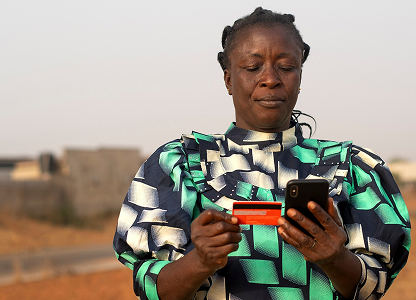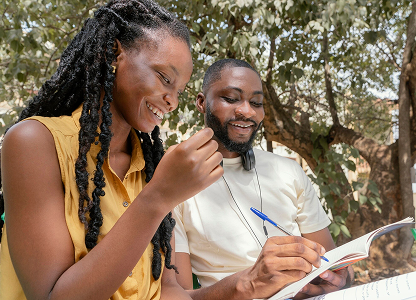
Research & Insights
Our Commitment
Nigeria is a richly diverse country located in West Africa, renowned for its vibrant culture, deep-rooted traditions, and vast ethnic diversity. With over 250 ethnic groups and more than 500 languages, Nigeria stands as one of the most culturally dynamic nations in the world. Its three largest ethnic groups—Hausa-Fulani, Yoruba, and Igbo—along with many smaller groups like the Tiv, Kanuri, Efik, Ibibio, Nupe, and Ijaw, all contribute to the rich tapestry of Nigerian culture.
One of the most defining features of Nigerian heritage is its strong sense of community and family. Nigerians place high value on family ties, respect for elders, and communal living. Extended family systems are common, where responsibilities and successes are often shared among family members. The culture emphasizes hospitality, with visitors typically welcomed warmly and treated generously, regardless of social status.
Language plays a significant role in shaping Nigeria’s identity. Although English is the official language due to colonial history, indigenous languages such as Yoruba, Hausa, Igbo, Ibibio, Kanuri, and many others are widely spoken across different regions. These languages are not only tools of communication but also vessels carrying proverbs, folktales, music, and traditional wisdom from generation to generation.
Religion is another integral aspect of Nigerian culture. The country is roughly divided into three religious zones: Islam predominantly in the North, Christianity mainly in the South and East, and traditional African religions spread throughout various regions. Festivals, rituals, and religious ceremonies are deeply woven into the social fabric, from the Muslim Eid celebrations to the Christian Christmas festivities and numerous traditional festivals like the Osun-Osogbo festival and the Argungu Fishing Festival.
Nigerian music and dance are globally celebrated. Afrobeat, popularized by Fela Kuti, Highlife, Fuji, and more recently Afrobeats (modern pop music from Nigeria) have captured international attention. Nigerian dances, such as the energetic Bata, Atilogwu, and Sharo dances, are not just forms of entertainment but expressions of cultural identity, history, and social values.
Nigerian cuisine is another proud marker of heritage. Meals often include richly spiced soups and stews served with staples like rice, yam, cassava, or maize. Popular dishes include Jollof rice, pounded yam with egusi soup, suya (spiced grilled meat), and moi-moi (steamed bean pudding). These dishes vary significantly across ethnic groups, reflecting local ingredients and traditions.
Traditional attire is colorful and symbolic, with each ethnic group having distinctive clothing styles. The Yoruba wear the Agbada and Buba, the Igbo don the Isiagu shirt and George wrappers, while the Hausa-Fulani are known for their flowing Babban Riga and intricately embroidered caps.
Nigeria’s arts and crafts also stand out. The country boasts ancient cultural artifacts like the Nok terracotta, Benin bronzes, and exquisite Yoruba carvings. These works are not only aesthetically significant but also serve as historical records and spiritual symbols.
In all, Nigerian culture and heritage are deeply rooted in tradition but continue to evolve, blending modern influences with age-old customs. The resilience, creativity, and communal spirit of Nigerians remain at the heart of this cultural richness.
Lorem ipsum dolor sit amet, consectetur adipiscing elit. Ut elit tellus, luctus nec ullamcorper mattis, pulvinar dapibus leo.
Quick Links
- Home
- About
- Episodes
- Research
- Events
Information
- Privacy Policy
- Terms & Conditions
- Gallery
- Contact
- FAQs
Follow Us
- X
- Youtube
© 2025 My Village People. All rights reserved.
- Privacy Policy
- Terms & Conditions
- Cookie Setttings
Quick Links
- Home
- About
- Episodes
- Research
- Events
Information
- Privacy Policy
- T &C
- Gallery
- Contact
- FAQs


